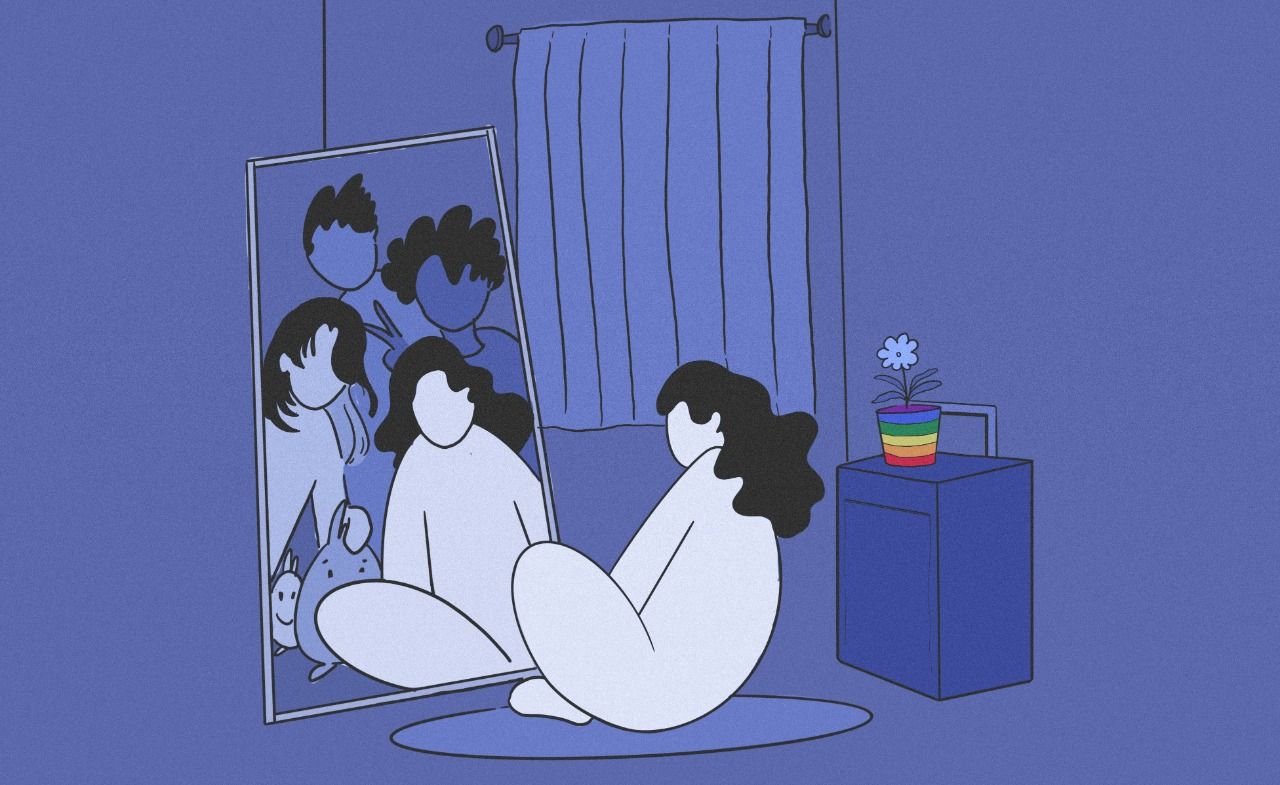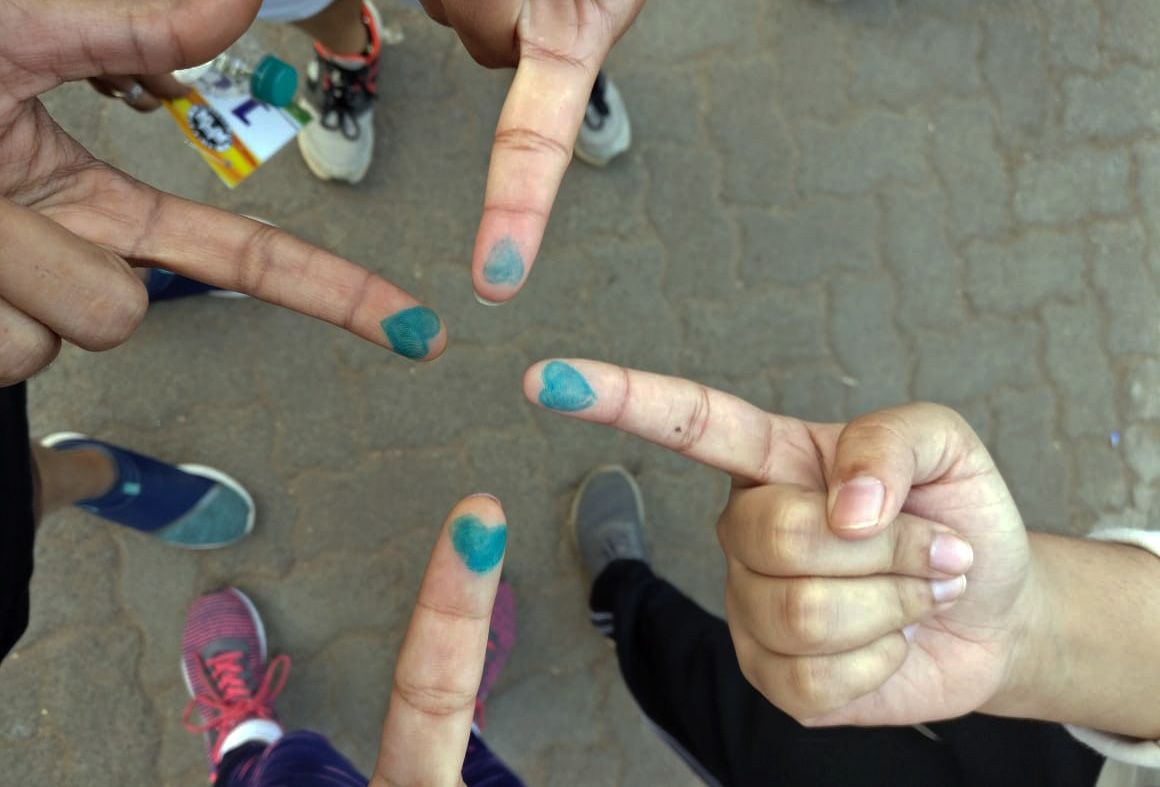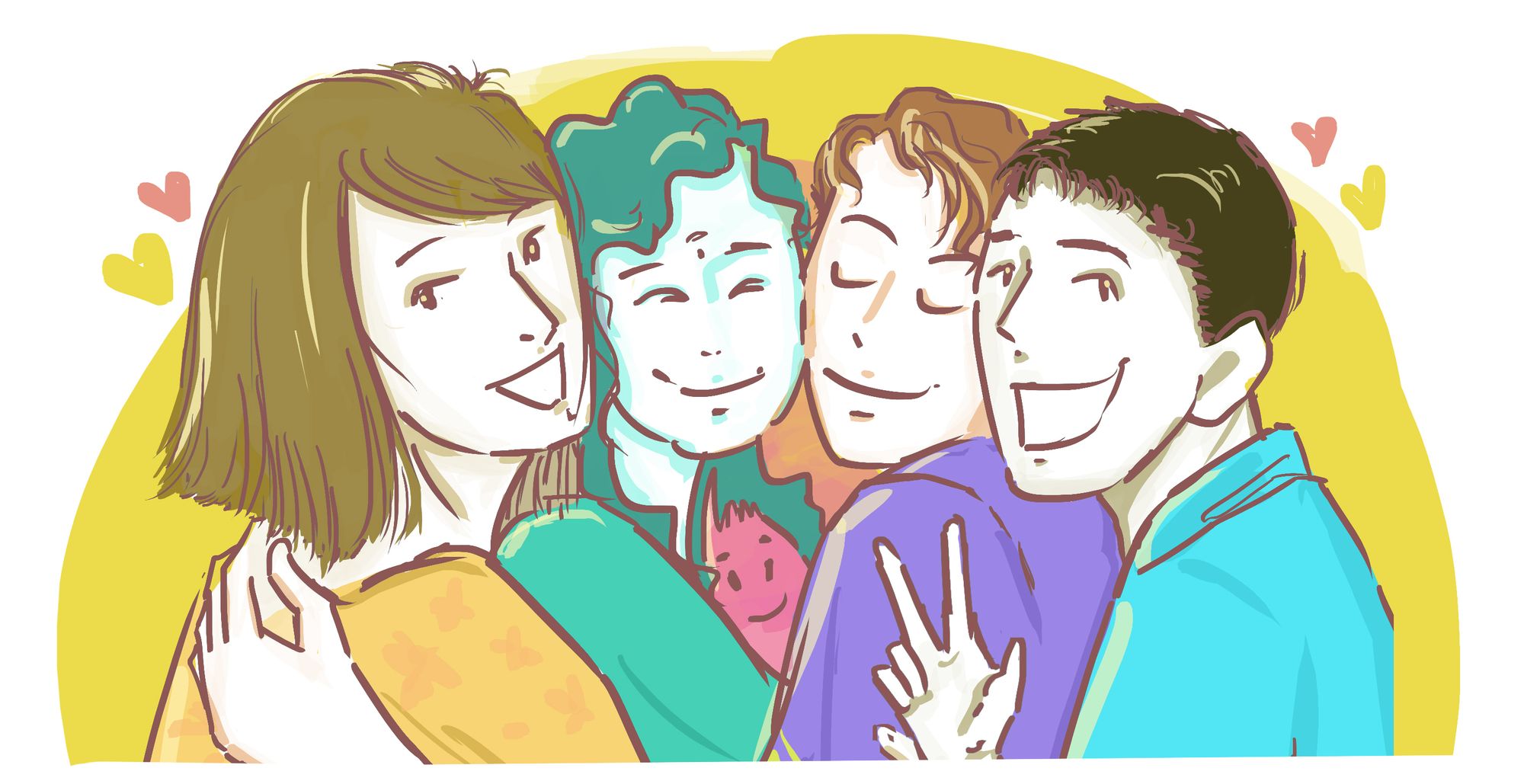Finding your 'spectrum' - Stories from being queer and diabetic
Growing up as an Indian kid, I was never really taught to question things. Things were always absolutes – Yes or No. Anything uncomfortable came into the ‘kyun’ section, that didn’t really go the route it should actually go. Questioning things happening to oneself with hopes to talk about it was a privilege, be it about who you are or what you are going through. And the thought of coming to terms with a lifestyle changing condition and AND thinking about the gender of your life partner not being the social norm- "NAHIII" (in 90's Kareena Kapoor voice)
Hi, I am Vinita alias Amber, a type 2 diabetic who identifies as a queer person (She/her). While life with the former is going 8 years strong, with the latter I’m still trying to find a space that fits. Maybe, it’s not necessary, but the biggest take away from being diagnosed with diabetes is to think in spectrums. Numbers, binaries of identity, who we are attracted to - all sound absolute, like 2 ends of a pole, but the more you dig into it, the more you realise - it’s not a straight line with 2 points, but a meter that wavers every day and you associate yourself to a ‘range’. What you feel is not just 2 outcomes. It depends on how close you are to one and that can change. My attraction oscillates just like our hypos and hypers.
While being diagnosed with diabetes is indeed a nightmare for all types of any age, I’ll share my perspective as being a naive teenager at the clinic, filled with people double or triple my age, a sight I still see. I have parents with the same condition as me but not in sync with what I was going through. Every piece of information given, even by doctors was absolutes. “Don’t eat this, don’t do that." "Karela is all you get and yes, your medications will forever rise." "Support system? Shhhh, don’t talk about and deal with it yourself.” Anything that suddenly breaks the status quo is not something we cope well with. The shame it brings as it becomes a taboo. You are not advised to not be vocal and somehow it’s your fault. Somehow you start feeling guilty and that adds on to the stress of managing life. Sounds familiar? Well, welcome to the discovery of being queer. You are equally confused, not allowed to experience or ask yourself what attraction means to you, and are expected to only fall in love with the opposite sex. Anything beyond it is just blasphemy and comes into the ‘log kya kahenge’ hall of fame. Thus we grow up playing a version of ourselves to match what others want us to be and hide our true self, fearing prejudice, humiliation, and bullying.
Every diabetic has their fair share of painful nights. I’m sure every queer and questioning person has it too. What is comforting beyond all that pain is the gift both experiences gave me - The ability to listen to myself. For diabetics, we have our treatments, our regimented food patterns and our blood sugar testing protocol. I don’t deny them but I don’t have to take them as the only part of my life. It’s finding that sweet spot. The balance of your cheat meals, the combinations of what works for you, and for your body and what makes you feel good. The machine will tell you the number, and my privilege of being type 2 is definitely there, but at the end of the day, it’s only a number. That number is a part of my happiness or sadness, it’s not what defines me. It’s everything together. And surprisingly the same advice worked when I hit my second roadblock of self-discovery - with me questioning my sexuality. One thing I learned the other way around is that we don’t have to fight our demons alone. There is always someone like us looking for others like them. We always start this journey thinking we are all alone. Many times, it’s the social pressure and ideals that tell us to not be vocal or expressive – be it about our preferences, our desires, or injecting insulin in public. With all these conditions tying up with our mental struggle, it is this thread of people who become your support system because they can feel what you feel. They are your fellow warriors and meme-makers which will make you feel less lonely and give you strength.

At 18, when I was slowly understanding my illness, I was always torn about where I belonged. I was a 'juvenile' diabetic in the sense that I was diagnosed in childhood but didn’t relate to type 1 diabetes protocols. I was type 2 like my parents, but their way of dealing with medication and supplements was something I didn't agree with, as it was more of ‘recommended’ advice than understanding the illness. Stuck in a gap where I couldn’t understand either and felt left out. I was also told to stay quiet about my diagnosis. Now that I think back, I had to keep it all in, because of stigma and the start of all problems – "Log kya kahenge?" It’s here where a community helps – be it through WhatsApp groups, forums, etc. Through Instagram and a project I was working on, I got to connect to people who had similar struggles like me and it changed my life. I met 4 other girls who were at similar crossroads struggling to find our own space, infact Sayli and Ajooni helped me edit this piece. The spectrum logic came back as we discussed being the weird group of diabetics and adopted combinations of both types to solve our questions. Had it not been the kind people who decided to help me on Instagram (mostly non-diabetic), finding this group of people, along with many like Blue Circle Diabetes Foundation it probably wouldn’t happen.
Reach out, find a community, seek help - our community led, non-judgemental helpline is always available to listen to you and talk to.

Similar to this is my own understanding of orientation – I stand at a crossroads where I don’t associate with the concept of being straight and neither do I belong to one strong LGBTQIA+ label. This is a very tricky place as you tend to question yourself a lot, because there is nothing to validate, apart from yourself. All these questions and introspection may give you discomfort but finding a community helps through it all.
It’s very difficult for someone who is not going through what you are to understand. And for someone on the other side, I don’t expect you to become or understand me in the same manner. What I and other LGBTQIA + diabetics ask is for you to be supportive. Help us; be ready to listen so you can get close to ‘understanding’. It’s a struggle for both parties, but that’s what it is to be an ally, to support one another. Similar to the many who helped me in my dark time, if we all can be a little more supportive and open about people and preferences, the world can be a much more accommodating and a happy place.
You don’t have to be gay to support the queer community, just like you don’t have to be diabetic to support diabetics.
Question your understanding like you question the carb value of your meal. The same formula for one clearly doesn’t always work for the other. The same diabetic treatment for you may or may not work for someone else. The medications my parents take and what I take are totally different. So why is ‘attraction’ expected to work the same for all? It comes down to the spectrum. How much one ‘feels’ for someone. It may be easy for some and for many, it’s a journey of a lifetime. But the entire ability to just listen to oneself and care for oneself is gift diabetes has given me. And I unpack that ability as I travel into the second journey of self-discovery. And where’s the thrill without a little experimenting (safely), right?
It narrows down to one line – be yourself with people for and like you.
Does diabetes make you any less of who you are? Maybe it’s time to ask the same question to one's approach to sexuality. Pride month is officially over but it’s always pride time, just like our health management, so Happy Pride!

SUPPORT BLUE CIRCLE DIABETES FOUNDATION
We need your help and support to continue to grow, expand and touch the lives of countless people in the diabetic community. Every little bit helps us in sustaining this endeavour.
Click here to donate

